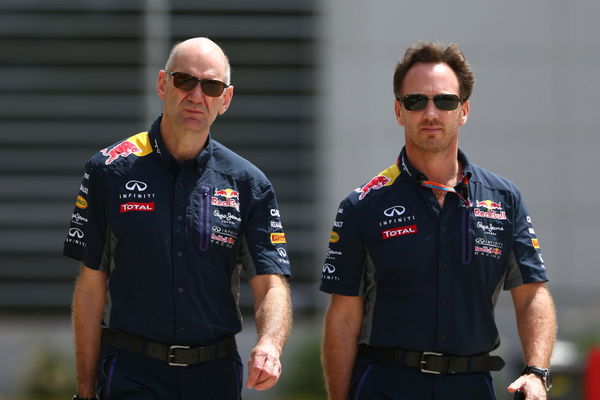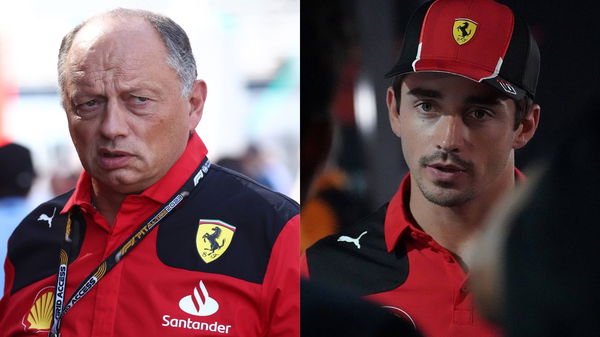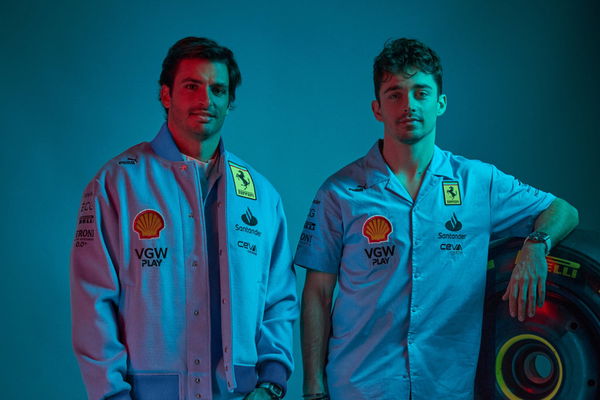“Respect Rules Instead of Misbehaving”: Authoritarian FIA Hits Back at F1 Drivers for Opposing $1 MN Fine

Follow Us

via Imago
L-R: Charles Leclerc, Mohammed Ben Sulayem, Lewis Hamilton | Image Credits: Imago
The FIA’s decision to impose a maximum fine of a million dollars on Formula 1 teams and drivers who breach the regulations has been the topic of heated discussions in the motorsport community. The move, although viewed by some as largely “symbolic,” has already seen its application.
Several drivers, highlighting the fact that not every driver earns in the six-figure range, and team principals expressed their dissatisfaction over the decision during the Austin weekend. Nevertheless, the FIA remains resolute in its stance.
The Federation’s drive for rule adherence in billion-dollar sport
ADVERTISEMENT
Article continues below this ad
Mohammed Ben Sulayem, in his conversation with Speedweek, shed light on the Federation’s rationale behind this significant increase in penalties. He emphasized that in the current environment where team valuations touch the billion mark, it’s less about the money and more about adhering to the rules. Sulayem stated, “Teams are now talking about billions in terms of the value of each of them. It’s not a question of money, but of respecting the rules.”
#F1, Mohammed Ben Sulayem risponde alle critiche sull’aumento delle multehttps://t.co/zp6FewyUYM
— FormulaPassion.it (@FormulaPassion) October 31, 2023
He further pointed out that the fines levied are funneled back into the motorsport sector, thereby benefiting the sport. Sulayem stressed the importance of upholding the regulations, saying, “I hope that the drivers can make life easier for our stewards by respecting the rules instead of misbehaving.” He reaffirmed the Federation’s role, asserting that a strong governing authority is essential for the sport’s integrity.
Trending

Liam Lawson’s Surprise Contract Clause Threatens Daniel Ricciardo’s RB Seat
April 24, 2024 11:15 AM EDT

F1 Rumor: Adrian Newey to Join Ferrari, Leaving Red Bull Amid Christian Horner-Helmut Marko Fiasco
April 25, 2024 05:55 PM EDT

“[Charles] Leclerc Doesn’t Care About Ferrari”: F1 Insider’s Brutal Blow to Fred Vasseur & Co. Has Racing Community Lashing Out
April 24, 2024 05:00 PM EDT

What Is Azzurro La Plata and Azzurro Dino? Significance of Ferrari’s Historic Change to a Blue Livery for Miami GP
April 24, 2024 04:52 PM EDT

F1 Rumor: Oliver Bearman to Join Haas as Nico Hulkenberg Leaves Seat Empty to Join Kick Sauber Team
April 26, 2024 10:45 AM EDT
Get instantly notified of the hottest F1 stories via Google! Click on Follow Us and Tap the Blue Star.

Follow Us
In contrast, following Lewis Hamilton’s recent disqualification from the United States Grand Prix, Toto Wolff, the Mercedes team boss, has highlighted concerns over the current FIA scrutineering procedures.
Toto Wolff Calls for enhanced FIA scrutiny after Lewis Hamilton’s US Grand Prix disqualification
Hamilton, who delivered one of his most competitive performances of the F1 2023 season, finished just behind Red Bull’s Max Verstappen in Austin. However, the race’s aftermath revealed that Hamilton’s car plank had suffered excessive wear, leading to his second career disqualification. The Circuit of The Americas, known for its bumpy nature, coupled with the challenges presented by F1’s sprint format that requires teams to finalize their setups post a singular practice session, has been attributed to these unexpected discrepancies.
ADVERTISEMENT
Article continues below this ad

via Imago
Toto Wolff, Team Principal, Mercedes AMG Petronas F1, Freies Training 2, FP2, Grosser Preis von Italien, Motorsport, Formel 1, Saison 2023, 01.09.2023 ITA, Formel 1, Autodromo Nazionale Monza, 01.09.2023 Monza *** Toto Wolff, Team Principal, Mercedes AMG Petronas F1, Free Practice 2, FP2, Italian Grand Prix, Motorsport, Formula 1, 2023 season, 01 09 2023 ITA, Formula 1, Autodromo Nazionale Monza, 01 09 2023 Monza Copyright: xEibner-Pressefoto/Grafx EP_AGF
Addressing the ongoing debate on averting such future technicalities, Wolff pointed out the inadequacies in the FIA’s current inspection methods. Speaking to the press after the Mexican Grand Prix, he stated, “I think that the FIA and the scrutineers are too thinly spread.”
Wolff explained the challenging nature of inspections on sprint race weekends, especially in places like Austin, which boasts of a notably uneven track. He noted, “Checking plank wear on a sprint race weekend in Austin with the bumpiest track and then turning the result upside down, I think the moment you check it’s clear that you’re going to have some shenanigans afterward.”
ADVERTISEMENT
Article continues below this ad
Watch This Story |
The recent FIA fines and Lewis Hamilton’s disqualification have stirred debates in the motorsport community. While the FIA emphasizes rule adherence, concerns arise over its scrutineering processes, as highlighted by Mercedes’ Toto Wolff. The evolving dynamics of F1 in 2023 spotlight the need for transparent and consistent regulations for all parties.
Edited by:
Akash Pandhare

